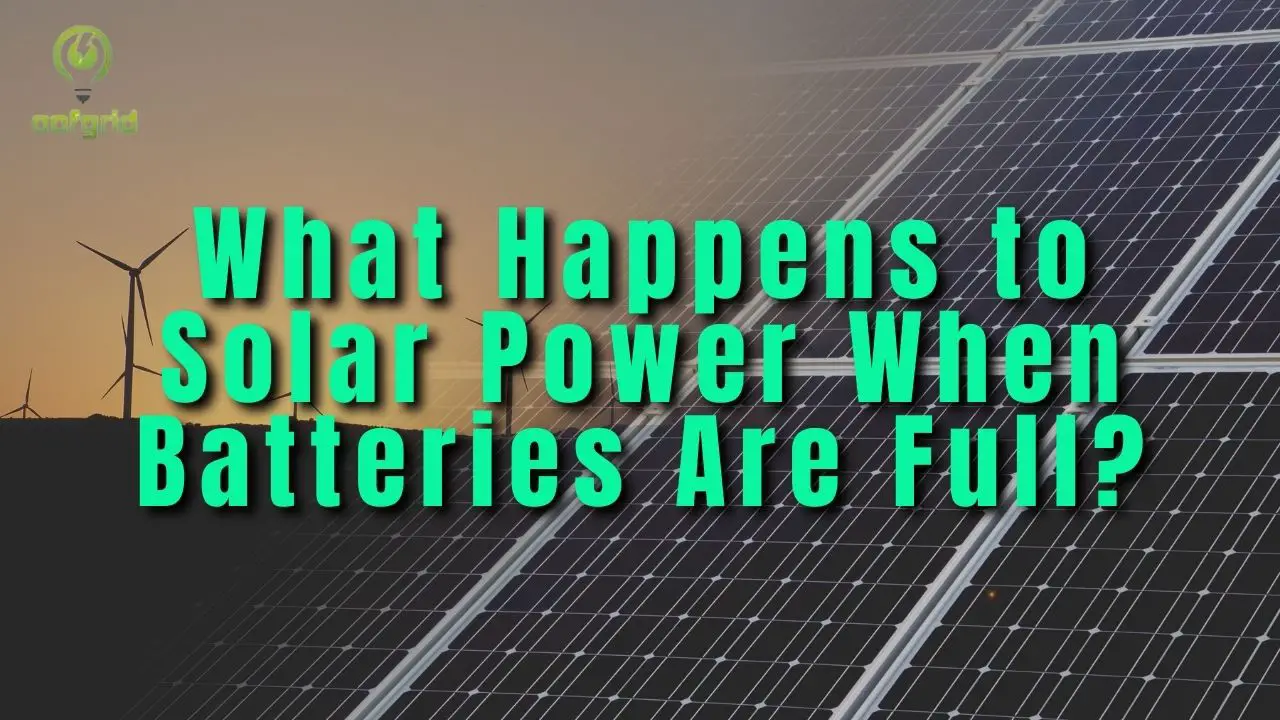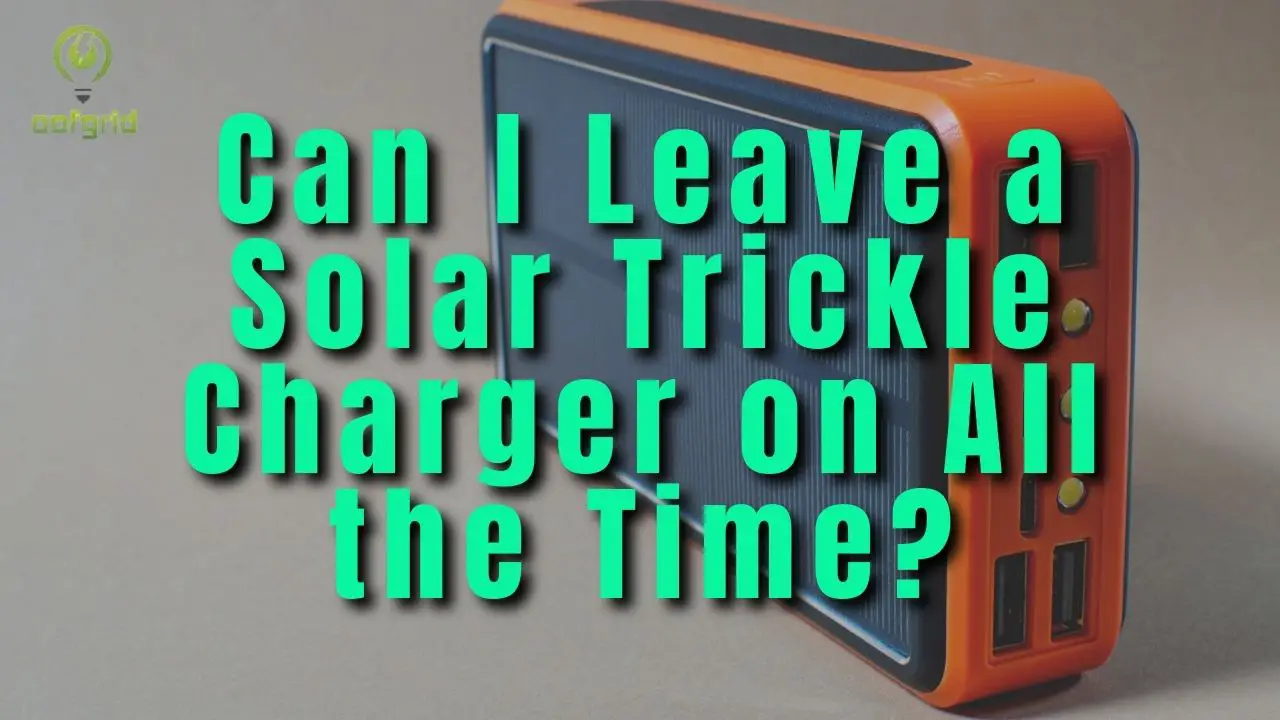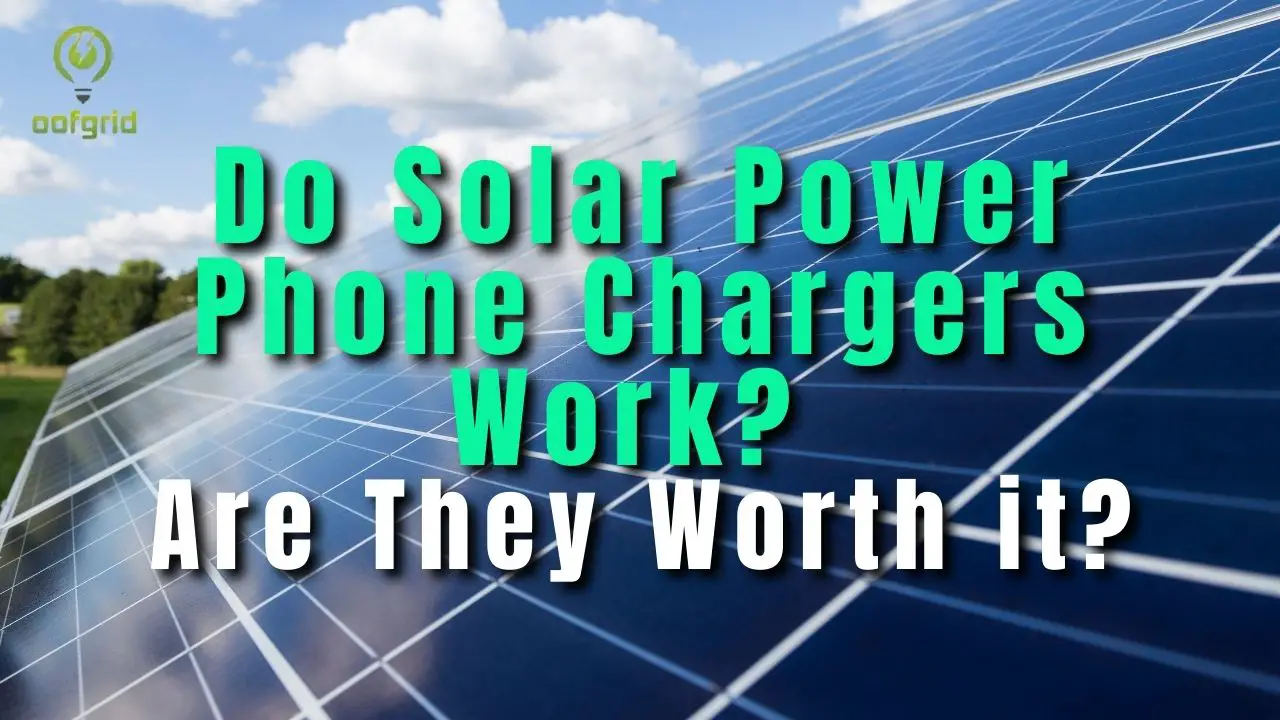Batteries are so expensive, and you do not want to damage them when you attach them to a solar panel.
Solar panels can overcharge your batteries if you do not have an adequate charge controller. It is important to match all your components in a solar setup. Be sure to contact experts or manufacturers when assembling your solar system.
Setting up a solar system is very intimidating because electricity is powerful and it can cause fires. Batteries that are overcharged can explode.
I was scrolling in one of my groups on Facebook and I saw someone who had nearly exploded their batteries by overcharging them. That is a really expensive mistake.
This is what happens if you connect a solar panel directly to a battery without a charge controller:
To avoid destroying your batteries be sure that all the components in your system match.

Contents
What happens if a battery overcharges?
Overcharging a battery is when more power than needed flows to your batteries. The extra power turns into heat and heat is the biggest enemy of batteries.
Heat affects different batteries in different ways.
Overcharged lead-acid batteries explode. My dad has been working with off-grid power sources for years and he has witnessed this happen to very expensive battery banks on more than one occasion.
Overcharged Lithium-Ion batteries also catch fire and explode when overcharged. That excess energy has to go somewhere and it becomes heat. The high density of Lithium-Ion batteries makes the explosion very dangerous.
Even if your batteries never catch fire, they will wear out much more quickly if they are given unregulated charges.
Batteries need to be charged at a constant rate within a narrow range, but your solar panels are designed to collect as much power as possible when sunlight is available.
The answer is the charge controller. It regulates the flow of power from your panels to your batteries.
How to Keep Your Solar Panel from Overcharging Your Battery
In a solar system, you have three main components, the panels, the charge controller, and the batteries.
The charge controller sits between the panels and the batteries and controls the flow of power from the panels to the batteries.
The charge controller will also allow the optimal flow of electricity to the batteries, flowing quickly when the batteries are empty and slowing to a trickle charge when the batteries are full.
There are two main types of charge controllers:
Maximum Power Point Tracker or MMPT and Pulse Width Modulation or PWM charge controllers.
These both sit between your batteries and panels and they both regulate the number of volts getting to your batteries.
PWM charge controllers are simpler and cheaper. They are like the knob on your faucet. They reduce the watts as your battery nears and reaches capacity.
PWM chargers are often the recommended choice for smaller systems because the panels must be wired in parallel for this type of charge controller to be effective in most situations. This can have some safety concerns as the limit is about 400 watts. Even if your panels, batteries, and charge controllers are sized correctly, other components, connectors, and wires may not be able to handle the load of panels wired in parallel.
Some PWM controllers do not come with a temperature sensor. We know that heat is the main enemy of batteries so it is important that you are always aware of the heat in the system is rising. This is a major safety concern and should be added if your PWM does not have built-in temperature sensors.
MMPT is more complex and more expensive, but they are better at maximizing the amount of power that can be stored in your batteries. The difference is significant, sometimes more than 30% more power than a PWM charge controller.
If you live in a very cloudy area or very far from the equator you will want to use MPPT to maximize the power from your system.
Another important difference is that MPPT charge controllers require about a quarter of an amp to function, so if you have a very small system it may not be worth the draw. This is a very small amount of power, so if your system is powering anything significant or being used regularly the benefits of the MMPTs outweigh the small power use.
How To Match Your Solar Panel To Your Batteries
Nominal Voltage and Rated Voltage
When you are purchasing components for your solar set-up, be sure to buy compatible components.
Solar panels have a nominal and a rated voltage. The nominal voltage is what is stated to help you match components. The nominal voltages should match on panels, charge controllers, and battery banks.
Some components advertise a range of possible uses, be sure that if you have a 12 or 24-volt charge controller that you set up the system as a 12 OR 24-volt system. The controller can do either, but not both at the same time.
The rated voltage is a measure of the power the panel is capable of producing. This number is measured in Standard Test Conditions (STC), which should also be listed on your panel label or product information page. This means that the actual amount of power your panel will produce will vary depending on temperature and other weather conditions.
Reading Charge Controller Information
Charge controllers have two main numbers that you need to pay attention to, Max Input and Max Output.
The Max input needs to match the capacity of your solar panels, you can find this information on the product page where you purchased your solar panels or possibly on a sticker on the panels themselves.
It is not a simple addition problem, as many factors impact your solar panel’s maximum energy-generating power. The temperature and the wiring make a big difference in how much power is produced by your solar panels.
Solar panels are tested in a controlled temperature environment, but they are used in all temperatures and this affects the amount of power that they can produce.
This calculator is the best thing I have seen for matching your charge controller to your panels, but errors are always possible, so be sure to chat with manufacturers or installers whenever possible.
National Electric Code Safety Factor
The NEC recommends that you multiply your maximum current rating by a safety factor of 1.25. This means that you will buy a charge controller larger than your needs. This is a safety concern because overcharged batteries heat up and explode.
In all calculations for your solar set-up, be sure to round up.
By buying a charge controller 25% greater than your needs you protect your batteries from overcharging and overheating.
25% more than you need can also be explained as 125% of your needs.
What should I do if my batteries have overcharged?
If your batteries have overcharged they may still be safe to use.
Check the battery housing to make sure it has not swelled or melted. If there is any visible damage to the battery it is best to replace it.
Next, buy or borrow a multimeter and test to see if the battery still works. A multimeter will display the volts when attached to the battery. The voltage should show slightly higher than the rated voltage of the battery.
A 12-volt battery may display 12.6.
If the number is lower or exactly the same, you should replace the battery.
Batteries that are overcharged wear out more quickly. Overcharging produces heat which breaks down the components of lead-acid and lithium-ion batteries.





